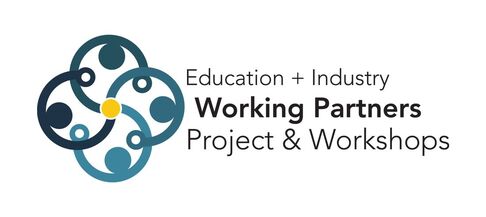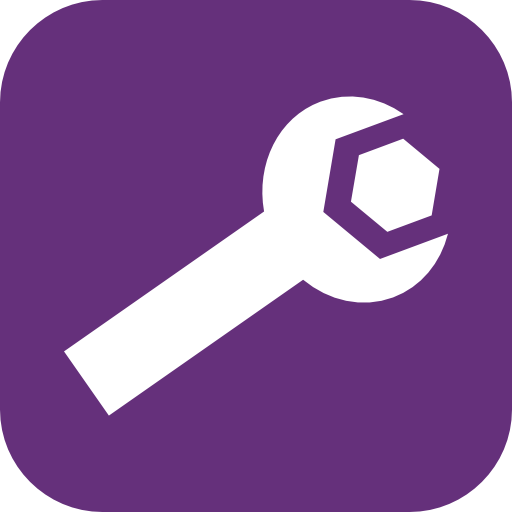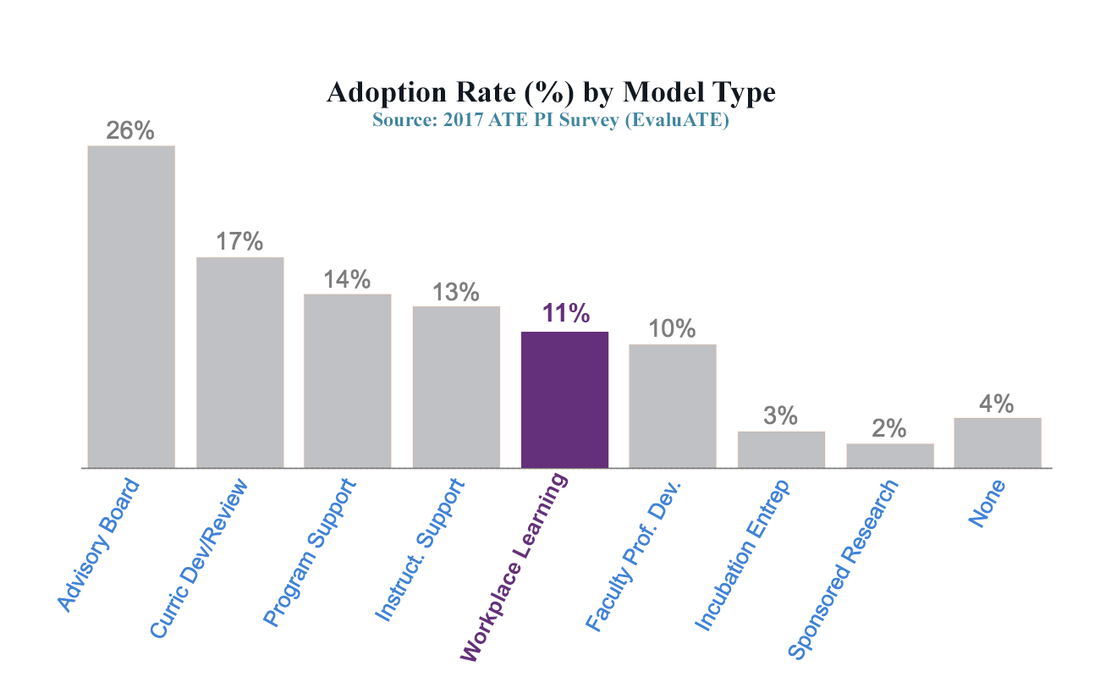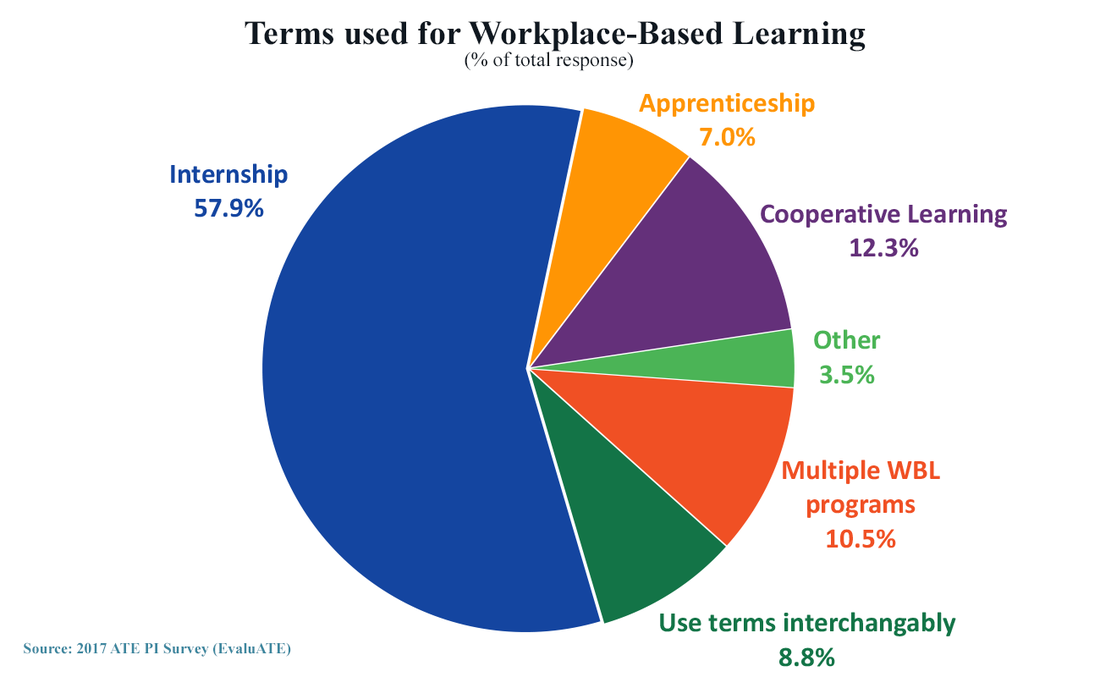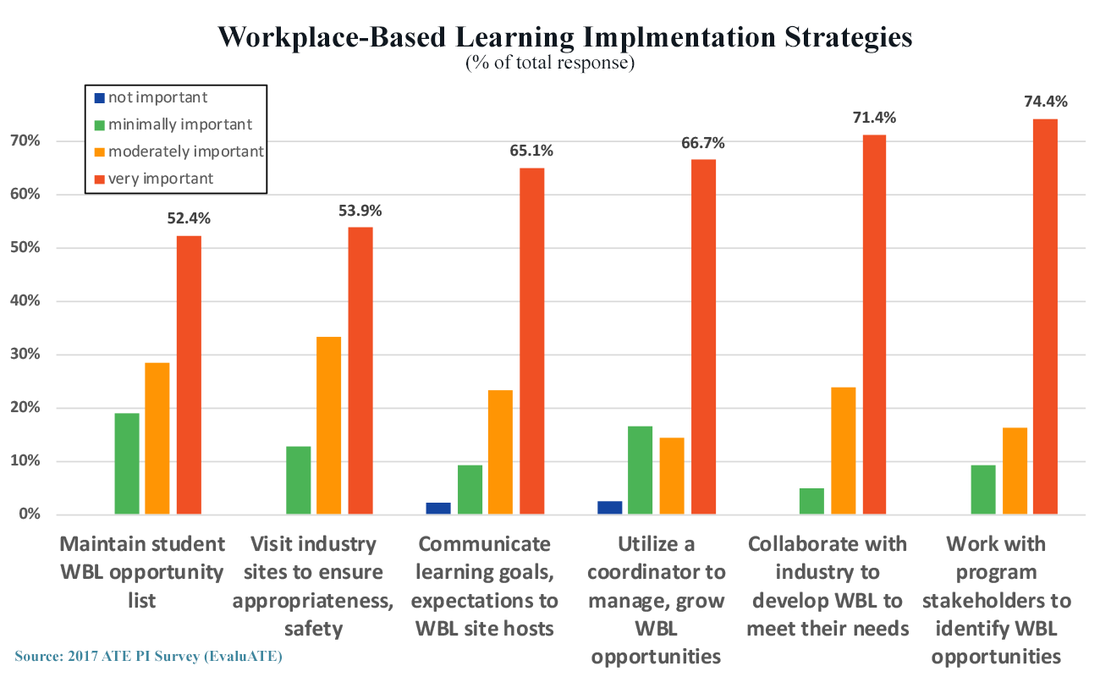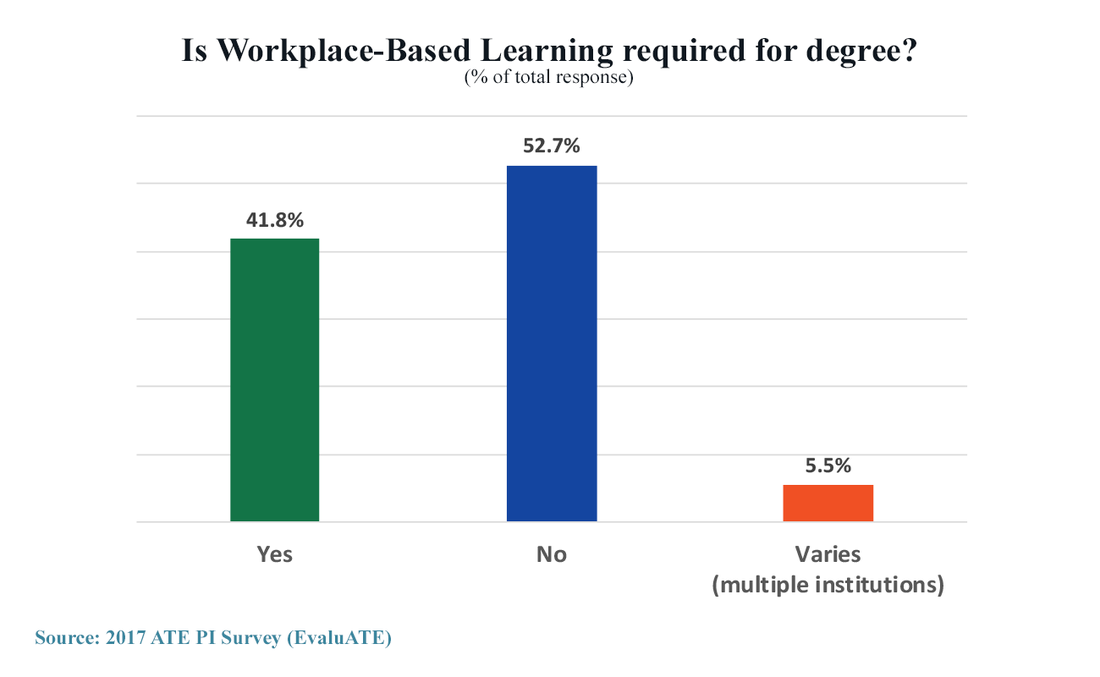Definition: Industry partner provides on-site opportunity for student applied learning, paid or unpaid, frequently with employment potential, often integrated with coursework.
Examples: Internships, apprenticeships, co-op learning, job shadows.
Examples: Internships, apprenticeships, co-op learning, job shadows.
|
Implementation Strategies
Reported Impacts
Reported Challenges
|
Click on image to enlarge
|
Workplace-Based Learning Case Study
The Viticulture Enology Science and Technology Alliance (VESTA) is a national grape and wine education program that pairs online instruction with continuous workplace-based learning experiences that build from simple job shadowing to a capstone 194-hour internship. VESTA has partnered with industry to provide some of these experiential learning opportunities but also has developed procedures and guidelines for partners to self-select and for students to find sites on their own.
